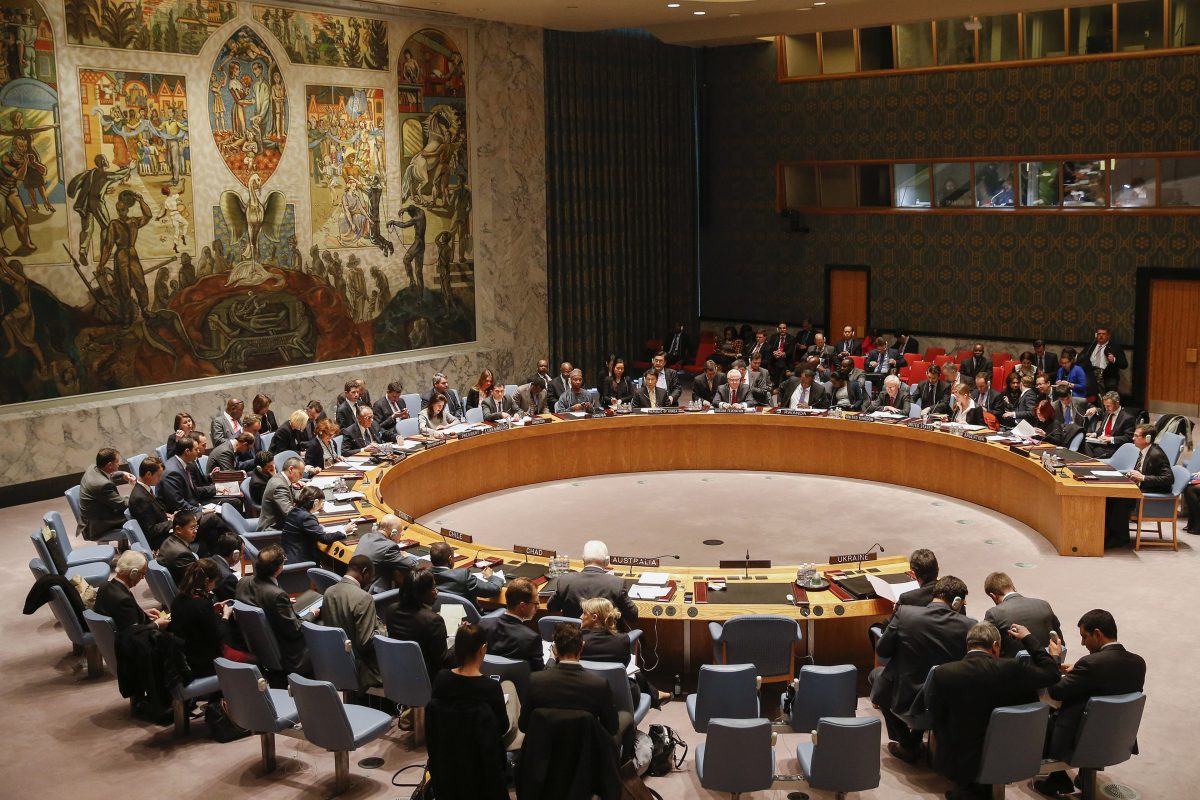On 25 May the Security Council will hold its annual open debate on the protection of civilians in armed conflict. The Secretary-General will present his report on the protection of civilians and the proposed theme of the debate is attacks on health care, five years on from the adoption of Security Council resolution 2286 on the same theme.
The intensification of armed conflict in Myanmar since the military coup was launched on 1 February, as well as a violent military crackdown against the peaceful protest movement, have been targeted against civilians in a widespread and systematic attack at the hands of the military junta. The situation raises many concerns relevant to the Security Council open debate and demands robust action from the Security Council.
Conflict has escalated in Kayin, Kachin, northern Shan and Chin states in Myanmar. The military has used aerial bombardments in civilian areas and caused the internal displacement of tens of thousands of people with refugee flows into India and Thailand, with concerns about refoulement against international law.
Since the coup, the military junta has waged a campaign of terror against the people of Myanmar. As a result of the violent crackdown against peaceful protesters by the junta forces (including police and military), at least 802 people have been killed between 1 February and 18 May —at least 53 of them children – according to the Assistance Association for Political Prisoners. There are increasing signs of armed resistance.
On 7 May SAC-M reported that medical professionals, who are playing leading roles in the nationwide Civil Disobedience Movement, are being systematically targeted by the junta with killings, beatings, abductions and enforced disappearances. Medical professionals are being prevented from treating those injured by the junta forces during violent crackdowns, leading to many more preventable deaths.
WHO has reported 120 attacks against the health system (including medical facilities, health personnel and supplies) between 1 February and 21 April. These attacks represent 75 percent of all such attacks against health systems reported worldwide during the same period. Health workers have been targeted merely for providing care to injured protesters and those engaged in civil disobedience. Hospitals and medical facilities have been targeted and occupied by junta forces.
The health system is collapsing entirely in Myanmar. COVID-19 testing, tracing and isolation of cases has been disrupted, with testing at 10 percent of the level before the coup, at most, while Myanmar’s health and vaccination system has almost completely shut down. The actions of the junta are destroying the healthcare system and Myanmar is facing an unprecedented public health crisis.
The post-coup crackdown has also included the arbitrary detention (in many cases enforced disappearances) of almost 5000 people who have opposed the coup, with numerous documented cases of individuals being tortured and killed in custody. It is estimated that at least 4120 people remain in detention.
The Security Council has so far met four times on Myanmar since the coup was launched but has failed to take any action to address the situation. SAC-M has proposed a ‘three cuts’ approach against the junta to address the crisis. Key actions that the Security Council could take include:
- imposing an arms embargo on the military junta to cut the weapons supply and prevent the use of weapons against the Myanmar people.
- introducing a targeted sanctions regime against leaders of the military junta responsible for attacks against civilians and the junta’s business enterprises.
- referring the situation in Myanmar to the International Criminal Court.
The situation in Myanmar underlines the importance of tackling impunity and ensuring accountability for atrocity crimes. Min Aung Hlaing, the head of the junta who led the coup and is directing attacks against civilians, is the same general that the UN Independent International Fact-Finding Mission on Myanmar (of which two SAC-M members were part) recommended should be investigated and prosecuted for genocide in Rakhine and war crimes and crimes against humanity there and in other states.
At a summit on 24 April ASEAN agreed a Five Point Consensus on Myanmar, calling for an end to the violence and proposing political dialogue led by a newly appointed special envoy. The Security Council has endorsed the plan and now should ensure strong UN support to the ASEAN process to make sure it succeeds. Unfortunately at this stage neither ASEAN nor the Security Council has backed its support for the Consensus with action to implement it.
Given that it is unlikely a UN peacekeeping operation will be mandated in Myanmar, consideration should be given to unarmed forms of protection along the lines of a recent proposal for an ASEAN/UN civilian protection monitoring mission.
Download the Briefing Note: SAC-M POC Briefing Note


